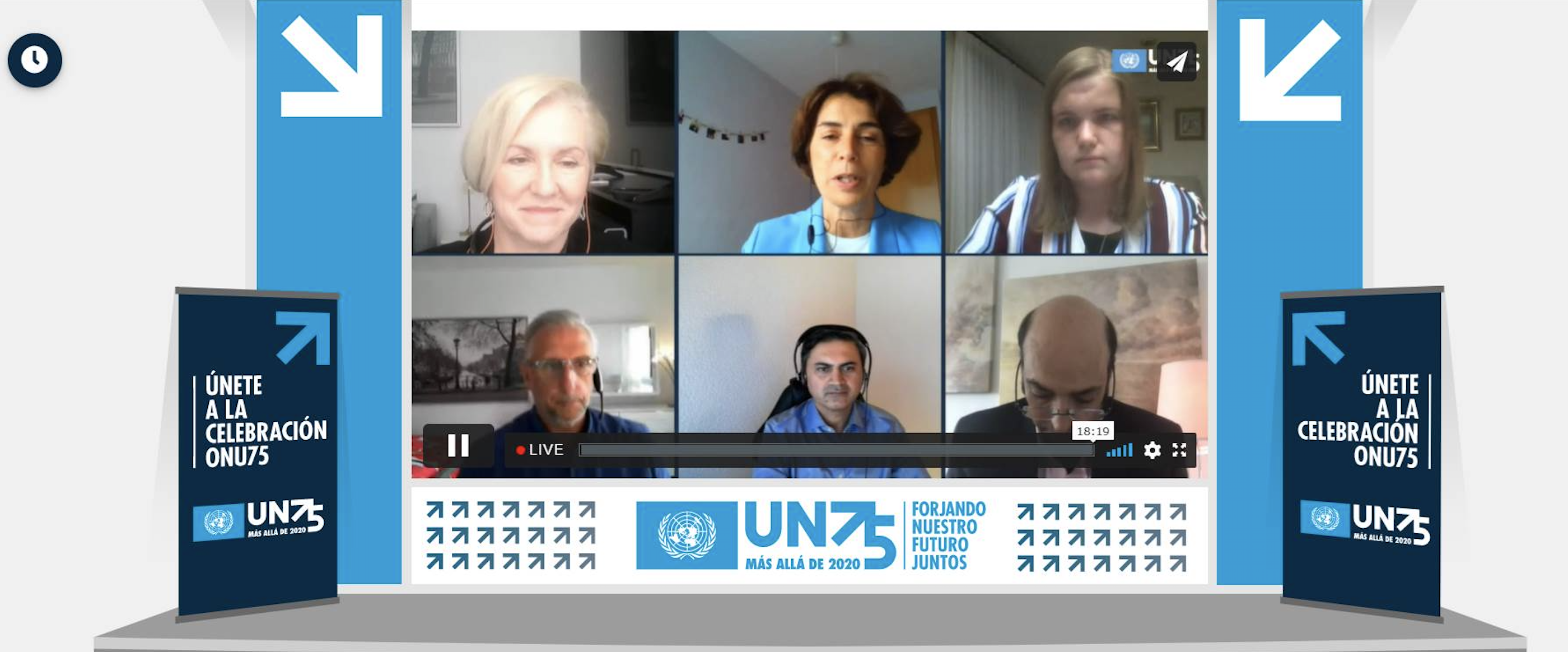Digital solutions at the service of multilateralism: new tools for the agenda 2030, human rights and peace
The United Nations is celebrating its 75th anniversary and around the world, UN organizations, Member States and civil society are commemorating this achievement.
On 22 October, the Spanish Ministry of Foreign Affairs, European Union and Cooperation and the digital media platform Esglobal organised a debate on ‘Technology at the Service of Multilateralism: New Tools for the Agenda 2030, Human Rights and Peace.’
Across the system, whether it is health, women’s rights, children, peacekeeping or refugees, every single UN Agency needs to be much more innovative now, use technology effectively and make sure we are consistent in how we build solutions that have to scale to avoid duplication.
Sameer Chauhan, Director, UNICC
UNICC’s Director Sameer Chauhan was invited as a panellist, together with Daniel Couture, Chief Information Officer of UNICEF; Cristina Gallach, Spanish Secretary of State for Foreign Affairs and for Ibero-America and the Caribbean; Nuria Simó, CIO and General Manager of the Department of Information Technology at the Inter-American Development Bank; Salem Avan, UN’s Director of Strategy, Policy and Governance Division and Raquel Jorge, Fulbright fellow at the Elliot School of International Affairs . The debate was moderated by Cristina Manzano, Director of Esglobal.
All participants shared thoughts, practices and experiences on how to promote the use of new technologies to achieve the SDGs. As Director of UNICC, the UN organization that develops and provides shared digital business solutions to the UN family, Sameer had a unique insight into current needs and acceleration trends in technology adoption across the system.
Applying technology to any of the SDGs leads to a multiplying effect. Technology and the success of the 2030 Agenda are absolutely linked.
Cristina Gallach
Every UN Agency is exploring how to better deliver on their missions and mandates, working more digitally and more effectively to produce measurable results. Sameer stressed the importance of data. Good data collection and analysis can help to make the smart decisions and determine where to direct resources.
Technology is instrumental to understand where we are, to measure our current state, to predict and understand what will happen going forward and how what we do today impact our effectiveness with respect to the SDGs.
Salem Avan, UN’s Director of Strategy, Policy and Governance Division
The conversation moved into the topic of diversity, a key aspect to counteract the inequalities in access to technology and a crucial element to take into account when developing innovative technologies in a multilateral system.
Panellists also talked about the role of the private sector in supporting the UN’s endeavours to achieve the 17 Sustainable Development Goals (SDGs). Sameer explained UNICC’s capacity to collect digital business requirements across the UN system, consolidate and bring them to the private sector, as it has already done with some of the biggest tech companies, such as Microsoft, Amazon Web Services, ServiceNow and UiPath for Robotic Process Automation.
We have seen three years of growth in just three months. When COVID-19 hit, we realized immediately that everyone needed to adopt digital processes while keeping face-to-face levels of trust, and ensure staff acquired the necessary digital skills.
Sameer Chauhan, Director, UNICC
This debate is just one of many events organised by the Spanish Ministry of Foreign Affairs, European Union and Cooperation in collaboration with several partners to commemorate the UN’s 75th anniversary. The next roundtable will be on 25 November about the future of the UN in a globalised world.

